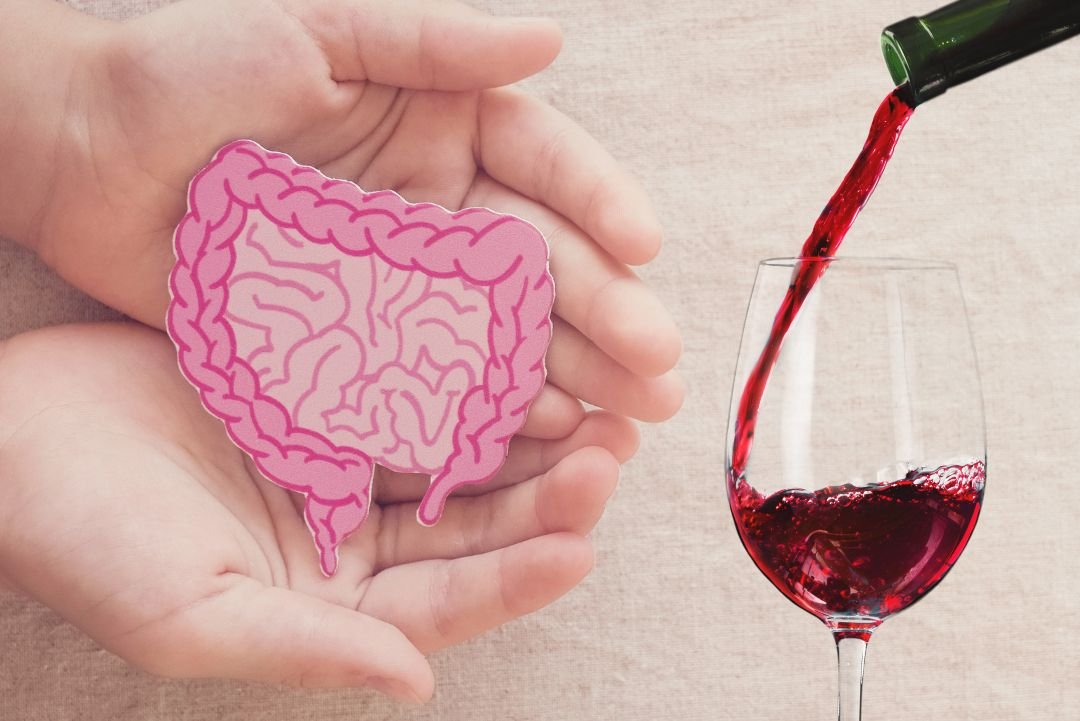Blog
Sugar Cravings and Sobriety: What's Going On?
Sugar cravings and sobriety- what’s going on? You may have given up drinking successfully but now your sugar cravings feel intense and overwhelming. Don’t panic. This is common. Alcohol and sugar light up the same reward centre in the brain. Sugar can also be an emotional crutch through stress and let’s face it – early sobriety can be stressful So, here’s what’s going on with those sugar cravings in sobriety and what to do about them.
My Son Is Turning 14: The Age I Started Drinking. What Do I Tell Him?
As a Grey Area Drinking Coach, I find myself in an uncomfortable position when it comes to talking about alcohol with my soon-to-be 14-year-old son. I started drinking alcohol at the very same age. I want to protect him from the pitfalls and risks I experienced while also giving him self-agency and trust he will make responsible choices. This is not an easy balance, but here's how I talk to my son about alcohol…
5 Ways to Manage Sugar Cravings When You Quit Drinking
Sobriety often comes with an unexpected challenge – sugar cravings. These cravings, fueled by the body's physiological and psychological response to alcohol withdrawal, can feel overwhelming, and out of control. While it’s okay to give in to sugar cravings in the very early days of sobriety, if you’re ready to take on your sugar addiction and manage cravings, it can be done.
How To Approach Sex When You’re Newly Sober
Approaching sex when you’re newly sober can feel awkward. It can make you feel vulnerable and self-conscious – even with a long-term partner. That’s because so many of us have only ever had sex with a few drinks under our belt. So, how do you approach sex when you’re newly sober?
With self-exploration and compassion, staying in the moment, and feeling all the feels.
Why Sugar Cravings Feel Out of Control When You Quit Drinking (And What To Do)
If you’ve never been a sweet tooth before, intense sugar cravings after quitting alcohol can feel overwhelming. While a little sugar in the early days of sobriety is normal and can be part of the process of going alcohol-free, too much of the sweet stuff just isn’t good for you. Here’s why sugar cravings feel out of control – and what you can do about them.
10 Tips for Navigating Friendships in Our 40s When One of You Is Alcohol Free
As we get older, our friendships change. Our circle gets smaller and tighter, and because time is more precious, we often spend time together enjoying a shared pursuit. That might include walking or going to yoga together. For many, it means unwinding with a few glasses of wine. ‘Catching up for a drink’ or ‘Popping by for a drink’ is often how friendships are maintained in our 40s and beyond. Sometimes friendships that have been built on drinking, mean we only know each other in this setting. It feels familiar, comfortable, and habitual.
Until one of you goes alcohol-free
Changing Australian Workplace Drinking Culture: A Call for a Healthier and Inclusive Approach
Australia’s leading Grey Area Drinking Coach, Sarah Rusbatch, is championing the need for a transformative shift in Australian workplace drinking culture.
With workplace celebrations, networking events, and knock-off gatherings predominantly revolving around alcohol, there exists a prevalent phenomenon of ‘sober shaming’, placing pressure on individuals who choose not to drink.
6 Ways to Support a Grey Area Drinker (who might be battling in secret)
Many people struggle with alcohol addiction, but not all of them fit the stereotype of "alcoholic” or even present as problematic drinker. They might be high functioning and battling their relationship with alcohol in secret. Grey area drinking is common, and if you suspect someone you love needs help, it’s crucial to offer them empathy, support, and understanding.
Why We Need to Rethink Australian Drinking Culture This July
Every year, thousands of Aussies take part in a much-needed break from alcohol in July. But let's ask ourselves why we only find it socially acceptable to pause our drinking habits for one month of the year? With Australia recently earning the title of having the world's biggest binge drinking culture, and alcohol being linked to more than 60 diseases, it's time to embrace sobriety throughout the entire year without facing peer pressure or ridicule.
Why We Should Choose Authentic Joy Over Instant Gratification in Drinking
In a fast-paced world where instant gratification is readily available, it's crucial to recognize the importance of seeking authentic joy over quick fixes. Especially when it comes to drinking. While booze may give you a quick fix and dopamine hit, opting for authentic enjoyment can have a profound impact on your overall wellbeing.
Here's the problem with instant gratification… The ‘high’ we get from activities like drinking alcohol, gambling, drugs, or retail therapy, leaves us feeling empty afterwards. We often feel regret and remorse. Authentic joy, on the other hand, leaves us feeling satiated or nourished. That’s because it’s coming from an authentic place, and isn’t trying to “fill” a hole or numb an emotion.
Alcohol and the Gut – Moody Much?
Alcohol, the gut, and your mood – yep, they’re all linked. When we talk about the physical dangers of alcohol we often think of the liver or the heart. But your gut is dramatically impacted by drinking alcohol. This has a huge influence on your mood because the microbiome in your gut helps support your nervous system.
The 5 Physical Dangers of Alcohol We Don’t Talk Enough About.
We don’t talk enough about the physical dangers of drinking. That’s because alcohol is a part of our societal fabric, emotionally linked with celebrating, relaxing, and getting people together. Big Alcohol would like you to believe that all our big life moments come with a glass of bubbles…
Stress and Alcohol- Why It’s a Nasty Cycle.
Taking the edge off stress with alcohol is a go-to for many women with far too much on their plates. Our To Do lists are long and our self-care is at the very bottom. A glass of wine (or more) at the end of the day is the fastest, easiest way to unwind and get some relief. The problem is stress leads to drinking more, and then alcohol leads to us feeling more stressed, creating a nasty cycle that's hard to break.
I’m 4 Years Sober - Here’s What I Know
Here I am. Today is a day I could never have imagined reaching four years ago. Today is a day for pausing, slowing down and deeply reflecting on this incredible journey. As I’m finding more and more, writing provides me with such a therapeutic outlet of emotions, reflections, and awareness, that it made sense to put this down in writing. I hope that if you’re reading this silently thinking 'How the hell do I get to 4 years, I can't even get to 4 days right now' this will help you get there too.
Sober and Bored? It’s Time to Redefine Your Leisure Time.
If you’re feeling sober and bored, it’s time to redefine your leisure time. You may have noticed alcohol makes boring things seem more interesting than they are. That’s why we can sit and binge-watch mediocre TV on the couch while drinking and feel entertained. Alcohol gives us a whopping big dopamine hit. That hit lights up the reward centre in our brain. We start to relax and feel entertained - without having do anything.
When we go alcohol-free, we need to redefine our leisure time. We need to replace that dopamine hit with something else. We need smaller, effort-based dopamine hits we can get naturally. When we take alcohol out of our lives, we need to put other things in. Like hobbies, interests, extra time with the people we love…
Why the People Closest to Us Are Our Biggest Triggers To Drink – And What To Do.
Why does it feel like the people closest to us are our biggest triggers to drink? Because they are! Our partners are often our drinking buddies OR they are the people in our lives who push our buttons and make us feel stressed and frustrated. Both are strong triggers to start drinking in their company.
So, what do we say to them? How do we tackle being triggered by the ones we love while also protecting our sobriety? Let’s dive in…
How To Quit Drinking Mid-life
Why is it so hard to quit drinking mid-life? Because the pressures of life can feel overwhelming at this stage, and women’s conditioning around drinking – spanning decades – is stronger than ever. I quit drinking in my early 40s, at a time when it was harder than ever for me to quit. Many women like me, use wine to self-medicate their overwhelm, anxiety and the symptoms of perimenopause. According to newshub.co, Australian research tells us 1 in 5 women aged 45 to 60 is a binge drinker. That’s double what it was 20 years ago.
Why We Need To Stop Talking About Moderation As An Aspirational Option
Why do we need to stop talking about moderation as an aspirational option? Because alcohol is one of the top 5 most addictive substances on earth, and ‘moderation’ for many drinkers is impossible. Big Alcohol would like us to believe ‘moderate’ drinking is an aspirational lifestyle. A glass of wine with dinner, a glass of bubbles at a party, that wine is the perfect way to unwind after a big day or a way to ‘treat’ ourselves…
5 Rewards of Sobriety You Didn’t See Coming
You might have given up booze to lose weight, feel better or to simply take back control, but there are extra rewards that I bet you didn’t see coming. These are the emotional rewards of sobriety that start to flow… It’s the newfound peace in your heart. A sort of calmness that comes when you no longer wake up ashamed of yourself. Or a return of mental sharpness you haven’t felt in years…
6 Signs You Need Boundaries (and how to set them)
Here are some signs you need boundaries… You feel resentment towards certain people because they take up too much time and energy. You feel obligated to turn up to events you don’t want to go to. You crave alone time, but you don’t want to appear ‘selfish’, cold, or difficult.




















